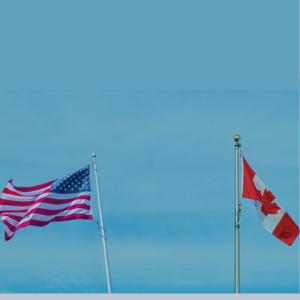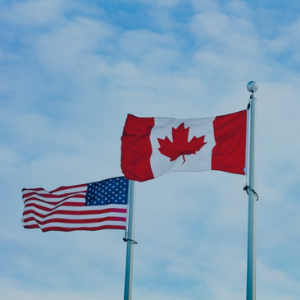
Canadians are confident when it comes to their personal finances and employment situation, but they are concerned about the future of their employers. While lower than initial seen during COVID, the desire for economic transformation remains strong in the face of Trump’s tariff threats.
These are some of the findings of two waves of an online survey of Canadian adults sponsored and conducted by Innovative Research Group (INNOVATIVE) between March 5th and 9th, 2025 (n=1,695) and March 11th and March 13th, 2025 (n=1,558). Both waves were combined and, based on Census data from Statistics Canada, the results are nationally weighted to n=2,000.
In spite of the ongoing Trade War, confidence and security over household finances is robust, with 55% feeling at least somewhat confident. Confidence is lowest in Atlantic Canada at 52% and among women (48%). Liberals are considerably more confident that NDP partisans (61% vs 51%).
- Feelings about Trump as President also has a significant impact. Those who are excited about his Presidency are +48% net confident about their household financial situation, compared to +10% of those who are afraid.
- We also explored the potential impact of awareness. At first glance it appears that following the news boosts confidence in household finances, with net confidence sitting at +25% among those who very closely follow news about Canada-U.S. relations, compared to -20% net confidence among those not following the news closely at all. This simply likely to be more about higher social status Canadians being both more confident and more likely to follow the news.
In the midst of tariffs and an unemployment rate that continues a slow and steady climb, Canadians’ confidence in being able to find another job remains positive at net +35% agree. Confidence is highest in the Prairies (63% total agree), and among men (60%). Along party lines, NDP voters are significantly less confident than other party partisans.
- Net agreement in being able to find another job is at +39% among those who are closely following the new on Canada-U.S. relations, versus +19% among those who are not following the news closely at all. Again, we do know that those with higher levels of education and income tend to follow the news more closely than others.
- Those who feel excited about Trump’s Presidency are significantly more likely to feel confident about finding another job than those feeling afraid (+63% vs +26%).
Where we start seeing real concern is among employed Canadians who are more concerned about the welfare of their employers than they have been since 2008 – far more so than during the height of COVID. Asked if they feel the organization they work for is going to survive the downturn in the economy, 37% agree while 33% disagree, resulting in +4% net agreement.
- Those who are watching the news very closely are less confident in the future of their employer (11% net agree they aren’t sure it will survive the downturn in the economy) than those who are not watching closely (-15% net agree).
- A surprising finding is that net agreement is much higher among those excited by Trump’s Presidency than among those who are afraid (+52% vs -9%). That means those who feel positive about the U.S. Presidency are less confident about the survival of their company.
- Those least confident in their organization are men (41% agree they aren’t sure their organization will survive the downturn in the economy), those in Atlantic Canada (46%) and Liberals (42%).
COVID was the last major challenge to the Canadian economy, and during the pandemic there emerged a discussion about the government’s general approach to the economy that may be rekindled as a result of Trump’s tariff threats. Half (47%) of Canadians feel the pandemic showed that we need to radically transform our economy to work differently in the future (down from a high of 53% in August of 2021). There is also a decline in those who feel the economy was working pretty well before COVID, down from a high of 44% in January of 2024 to 38% today.
- Conservatives (46% need to radically transform, 43% economy was working pretty well before) and Liberals (45% vs 46%) are most closely divided on the approach to the economy. More than half (57%) of NDP partisans feel the pandemic showed we need radical transformation.
- While the strength of opinion varies, the Core Left (59%), Deferential Conservatives (51%), Populist Conservatives (47%) and Left Liberals (47%) all feel the pandemic showed a need for radical transformation, rather than that the economy was working pretty well before the pandemic.
Click here to read the full report!

































